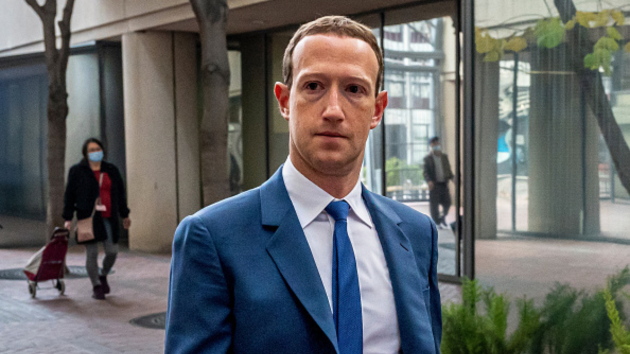Startup founder’s alleged $175 million fraud spotlights inequality in finance, experts said
Written by ABC Audio ALL RIGHTS RESERVED on April 13, 2023
(NEW YORK) — JPMorgan Chase trumpeted its $175 million acquisition of a college financial planning company called Frank in 2021, boasting that the firm served more than five million students.
Little more than a year later, however, the nation’s largest bank sued Frank founder Charlie Javice, saying she and another executive from the company deceived the bank and that the company actually had fewer than 300,000 customers.
In a counterclaim for wrongful termination, Javice denied the accusations, describing what she said was the bank’s failure to adequately vet the company as “implausible.”
The megabank’s apparent inability to properly assess the startup, which promised a wealth of valuable customer data, underscores the easy access to funding enjoyed by tech companies in recent years as low interest rates and billion-dollar success stories enticed lenders and investors, some experts said.
Run-of-the-mill small businesses often face more difficulty financing their operations than tech startups, the experts said. But rising interest rates and the collapse last month of Silicon Valley Bank, considered by many to be the preeminent lender for tech startups, could tighten financing for the tech industry, some added.
“This has to be one of the most spectacular failures of due diligence in history,” Rebel Cole, a professor of finance at Florida Atlantic University who formerly worked at the Federal Reserve, told ABC News about the JPMorgan Chase acquisition of Frank.
“The takeaway is that there are two Americas when it comes to banking: the haves and have nots,” Cole added. “Silicon Valley tech startups — those are the haves. They get special treatment.”
JPMorgan Chase declined a request for comment from ABC News.
Javice was arrested on charges of fraud and conspiracy, the Department of Justice announced last week; she pleaded not guilty and is out on a $2 million bond.
“As alleged, Javice engaged in a brazen scheme to defraud,” Damian Williams, the U.S. Attorney for the Southern District of New York, said in a statement last week. “This arrest should warn entrepreneurs who lie to advance their businesses that their lies will catch up to them.”
Javice was also charged with fraud last week by the Securities and Exchange Commission.
In its lawsuit, the bank alleges that Javice undertook a scheme to hoodwink officials vetting the acquisition deal.
In a legal filing in December, the bank claimed that Javice instructed the company’s director of engineering to “create fake customer details using ‘synthetic data’ techniques.”
When the engineer declined, Javice turned to a data science professor, who helped her create the fake customer database, the legal filing said.
Despite the alleged deception, JPMorgan Chase CEO Jamie Dimon said in January that the bank committed missteps during the acquisition.
When asked about the deal, Dimon told CNBC: “There are always lessons. We always make mistakes.”
“I tell our people we make mistakes, it’s OK. And when we know what all the lessons are, I’ll tell you what they were,” he added.
The failure of vetting is emblematic of a lax environment of easy money for tech startups in recent years, some experts said.
When JPMorgan Chase acquired Frank nearly two years ago, the Federal Reserve had yet to embark on an aggressive series of interest rate hikes in its effort to fight inflation.
In the 2010s, the Fed’s interest rates rarely exceeded 2%. The Fed slashed rates to near-zero levels during the pandemic to stimulate the economy.
When interest rates are low, money is cheap and lending is relatively easy since banks pay low borrowing costs.
The tech sector benefited from the low-interest rate environment, experts said, noting the relative ease with which banks and venture firms could finance ambitious startups despite knowing that many of them would go bust.
Venture capitalists poured more than $22 billion into tech startups between 2010 and 2022, a New York Times analysis found.
Silicon Valley Bank, which specialized in working with tech clients in the region, helped fuel the investing surge.
When some large clients pulled money from the bank last month, it was forced to sell some distressed securities in order to provide the cash, which in turn scared other major depositors, who pulled their funds and triggered a bank run.
“The failure of Silicon Valley Bank is a watershed moment,” said Cole. “With respect to lending to tech firms, it’s a total wake-up call for all other banks.”
“There’s absolutely a double standard,” Cole added. “The ease with which these companies get credit is different than the lending standards applied to small businesses.”
The disparate access to financing between tech companies and other small businesses owes in part to different sources of funding, Frank Fossen, a professor of economics and entrepreneurship at the University of Nevada, Reno, told ABC News.
“Innovative tech startups often have the option of accessing venture capital, especially in Silicon Valley,” he said. “Small businesses that are not innovative do not have this option and have to rely more on bank loans.”
The banking crisis that followed the collapse of Silicon Valley Bank strengthened the role played by large banks like JPMorgan Chase, heightening the significance of their lending decisions as the financial industry weighs its approach to tech, Robert Hockett, a professor at Cornell Law School who studies banking, told ABC News.
JPMorgan Chase received a huge wave of customers and deposits, amounting to hundreds of accounts and billions of dollars, a source familiar with the matter previously told ABC News.
“A small number of megafirms are eating up and gathering into themselves all that remains of the financial sector,” Hockett said.
Over roughly the last year, the Fed has raised its benchmark interest rate by 4.75 percentage points, the fastest pace since the 1980s.
A higher benchmark interest rate raises borrowing costs for businesses, which in theory should slow lending and put the brakes on economic activity.
In 2022, global venture capital investment plummeted by 36% compared to a year prior, according to data released by Bain & Company, a consulting firm.
“The Frank acquisition and the collapse of Silicon Valley Bank are outcomes of the excessive risk-taking in the ultra-low interest environment,” Kairong Xiao, a finance professor at Columbia University Business School, told ABC News.
“Given these scandals, and more importantly a structural shift in the interest rate environment, I would expect much tougher financing conditions for tech startups, especially from regulated banks,” he added.
Copyright © 2023, ABC Audio. All rights reserved.






